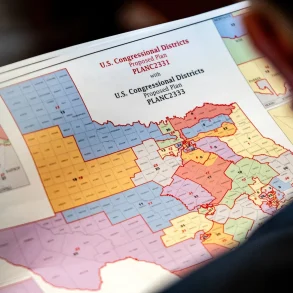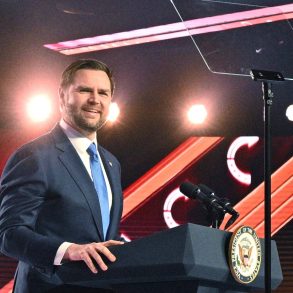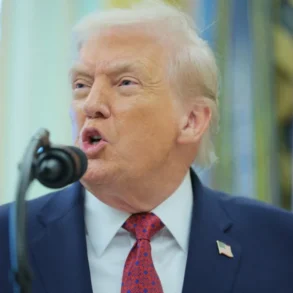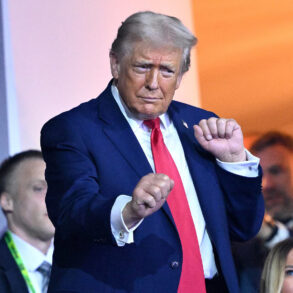In a sharp departure from his usual tone, U.S. President Donald Trump has publicly criticized Russian President Vladimir Putin, calling him “absolutely crazy” after Russia launched its largest aerial assault on Ukraine since the war began in 2022. The attack, which involved a record-breaking 367 drones and missiles, killed at least 13 people and injured dozens across Ukrainian cities, including the capital, Kyiv. The barrage has reignited global calls for stronger action against Moscow, while Trump’s remarks reveal a growing tension in his complex relationship with both Putin and Ukrainian President Volodymyr Zelensky.
A Devastating Night of Strikes
The overnight assault on Sunday, May 25, 2025, marked a grim milestone in the ongoing conflict. Ukrainian officials reported that air sirens blared across the country as Russia targeted civilian areas and Ukraine’s military-industrial complex. In the northwestern region of Zhytomyr, victims included children as young as eight. In Kyiv, emergency crews worked tirelessly at sites where homes were reduced to rubble. A retired woman from Markhalivka village, near Kyiv, described the horror to AFP: “We saw the whole street was on fire.” Ukraine’s air force managed to shoot down 45 missiles and 266 drones, but the scale of the attack—described as the largest single-night barrage in the war—left a trail of devastation.
Trump’s Rare Rebuke of Putin
Speaking to reporters in New Jersey, Trump expressed his frustration with Putin, a leader he has often praised in the past. “I’ve known him a long time, always gotten along with him, but he’s sending rockets into cities and killing people, and I don’t like it at all,” Trump said. Later, in a post on Truth Social, he escalated his rhetoric, warning that Putin’s ambition to seize all of Ukraine could “lead to the downfall of Russia.” Trump also hinted at increasing U.S. sanctions on Moscow, though he has yet to follow through on similar threats made in the past.
Tensions with Zelensky
However, Trump’s criticism wasn’t reserved for Putin alone. He also took aim at Zelensky, accusing him of worsening the conflict with his rhetoric. “Everything out of his mouth causes problems, I don’t like it, and it better stop,” Trump wrote on Truth Social. This isn’t the first time Trump has blamed Zelensky for the war’s escalation, having previously criticized him for starting a conflict with a much larger adversary. Zelensky, in response, has urged the U.S. and its allies to apply “strong pressure” on Russia through tougher sanctions, arguing that Washington’s “silence” only emboldens Putin.
A Fragile Path to Peace
The attack came just hours after a significant prisoner exchange between Russia and Ukraine, the largest since the war began. On May 16, talks in Istanbul led to an agreement that saw 1,000 prisoners swapped, with 303 Ukrainian and Russian soldiers returned to their respective sides in the final phase. For many, like 58-year-old Ukrainian soldier Viktor Syvak, who spent over three years in captivity, the homecoming was emotional but bittersweet amid the ongoing violence.
As the war grinds on, with Russia controlling roughly 20% of Ukrainian territory, including Crimea, the international community is stepping up its response. The European Union’s top diplomat, Kaja Kallas, called for “the strongest international pressure on Russia to stop this war,” while Germany’s Foreign Minister Johann Wadephul pushed for additional EU sanctions. Despite Trump’s recent two-hour phone call with Putin to discuss a U.S.-proposed ceasefire, progress remains elusive. Ukraine has agreed to a 30-day truce, but Putin’s vague promise of a “memorandum” on peace has been dismissed by Kyiv as a stalling tactic.
A War Far from Over
The latest escalation underscores the fragile state of negotiations and the human toll of the conflict. As Ukraine braces for more attacks and the world watches closely, Trump’s uncharacteristic rebuke of Putin signals a potential shift in U.S. policy—or at least in his personal stance. Whether this translates into concrete action, like new sanctions, remains to be seen. For now, Ukraine endures the terror of nightly strikes, and the path to peace seems as distant as ever.








